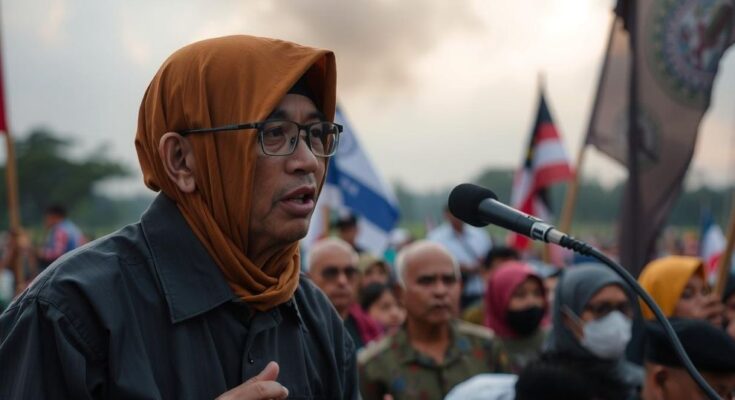Amnesty International urges Indonesia’s incoming government under Prabowo Subianto to prioritize human rights and accountability. Despite economic growth, the previous administration faced criticism for its ongoing human rights violations, repression of dissent, and failure to protect Indigenous communities. With a history of broken promises, the new leadership must address past abuses and ensure justice and freedom for all.
As Indonesia prepares for a new era under President Prabowo Subianto, Amnesty International calls for urgent action to address human rights violations that plagued the previous administration. The new government must work diligently to safeguard the rights of all citizens and hold accountable those responsible for past abuses, particularly amid the troubling legacy left by Joko Widodo’s administration. Despite some economic advancements under Joko Widodo, his tenure was marked by significant human rights abuses, including repression of dissent, disregard for Indigenous rights, and a culture of impunity. Usman Hamid, executive director of Amnesty International Indonesia, emphasizes that these issues flout Indonesia’s international human rights commitments and require immediate governmental reform. Human rights defenders, journalists, and environmental activists faced severe repression during the Jokowi era, with over 450 reported attacks on these advocates from early 2019 to late 2024. The government’s response to protests, particularly against controversial laws, often involved excessive force and arbitrary arrests, highlighting the ongoing struggle for freedom of expression. The Electronic Information and Transaction (EIT) Law has increasingly been used to silence critical voices, punishing dissenters with legal consequences for merely speaking out against corruption or environmental harm. Since 2019, Amnesty International recorded over 520 cases of charges under this law, revealing deep-rooted issues of suppression and a climate of fear for those advocating for accountability. The marginalization of Indigenous peoples continues, with the government prioritizing development projects at the expense of their land and rights. Protests have erupted against projects like geothermal plants and agribusiness developments, but authorities often use violence and arrests to silence dissenting voices. In Papua, violence persists, with numerous unlawful killings attributed to security forces amid ongoing conflicts with pro-independence groups. The new government is urged to reassess its security strategies, as the current approach has only exacerbated human rights violations and suffering among innocent citizens. Joko Widodo’s presidency was marred by broken promises regarding past human rights violations, which remain largely unaddressed. Victims continue to lack access to justice, while suspected perpetrators enjoy impunity, underlining the urgent need for the incoming administration to prioritize accountability and the rule of law.
The article discusses the state of human rights in Indonesia, particularly in light of the upcoming leadership change with Prabowo Subianto’s presidency. It reflects on the failures of the previous administration, highlights ongoing human rights issues, and emphasizes the need for immediate reforms to uphold and protect the rights of all citizens. Amnesty International Indonesia articulates specific concerns about the repression faced by human rights defenders, the marginalization of Indigenous communities, and the lack of accountability for past violations under Joko Widodo’s administration. The piece serves as a call to action for the new government to prioritize human rights and address longstanding issues that have plagued the nation.
In summary, the transition to a new government in Indonesia presents a crucial opportunity to prioritize human rights and accountability. The failures of the previous administration highlight the pressing need for reform, particularly in protecting vulnerable communities and addressing past abuses. As the nation turns the page, there lies a call for a commitment to justice, inclusivity, and meaningful dialogue regarding human rights for all citizens.
Original Source: www.amnesty.id



